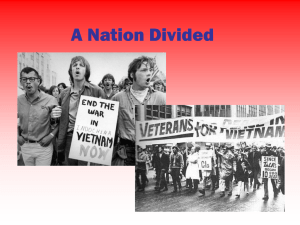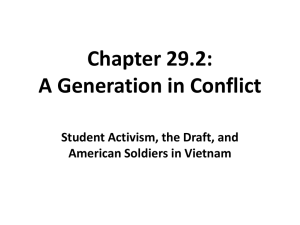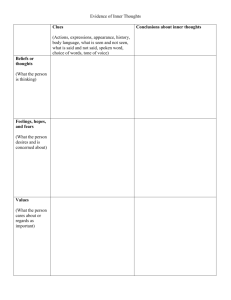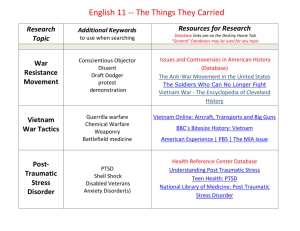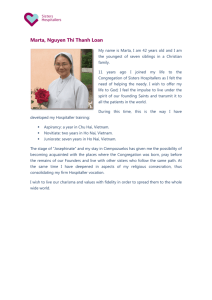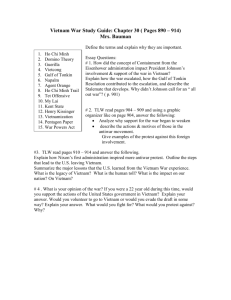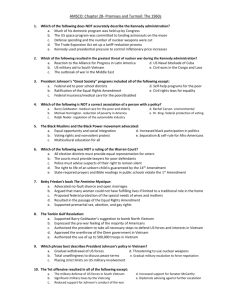The Vietnam War At Home
advertisement
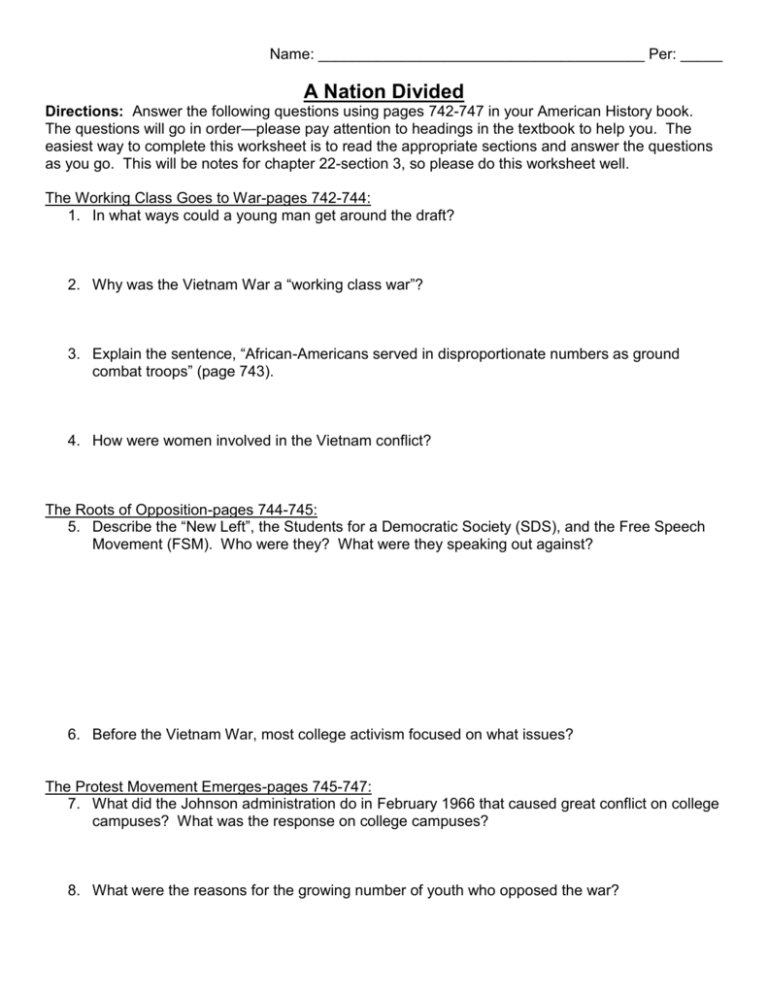
Name: _______________________________________ Per: _____ A Nation Divided Directions: Answer the following questions using pages 742-747 in your American History book. The questions will go in order—please pay attention to headings in the textbook to help you. The easiest way to complete this worksheet is to read the appropriate sections and answer the questions as you go. This will be notes for chapter 22-section 3, so please do this worksheet well. The Working Class Goes to War-pages 742-744: 1. In what ways could a young man get around the draft? 2. Why was the Vietnam War a “working class war”? 3. Explain the sentence, “African-Americans served in disproportionate numbers as ground combat troops” (page 743). 4. How were women involved in the Vietnam conflict? The Roots of Opposition-pages 744-745: 5. Describe the “New Left”, the Students for a Democratic Society (SDS), and the Free Speech Movement (FSM). Who were they? What were they speaking out against? 6. Before the Vietnam War, most college activism focused on what issues? The Protest Movement Emerges-pages 745-747: 7. What did the Johnson administration do in February 1966 that caused great conflict on college campuses? What was the response on college campuses? 8. What were the reasons for the growing number of youth who opposed the war? 9. Where else did protesting begin to emerge? 10. What were some of the ways people protested the war and resisted the draft? 11. Describe support of the war in 1967. How did Americans feel about the protests? 12. Through all of this turmoil, what was Johnson’s policy? Difficult Decisions—page 746: As the fighting in Vietnam intensified, young men of draft age who opposed the war found themselves considering one of two options: register with the draft board and risk heading off to war, or find a way to avoid military service. Ways to avoid service included medical and educational deferments. But a great many men did not qualify for these. The choices that remained, such as fleeing the country, going to jail, or giving in and joining the ranks, came with a high price. Once a decision was made, there was no turning back. 1. Imagine you oppose the war and are called to serve in Vietnam. What decision would you make? Would you feel guilty if you avoided the draft? If you chose to serve, how would you view those who did not serve your country? 2. Do you think more young men would have been willing to serve had this been a different war? Why or why not? Critical Thinking Questions: 1. Imagine it is 1967. Do you think you would ally yourself with the hawks or the doves? Give reasons that support your position. 2. Do you agree that antiwar protests were “acts of disloyalty”? Why or why not?
